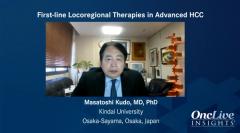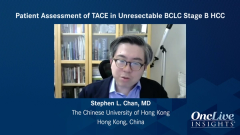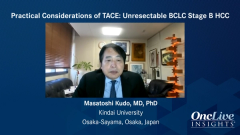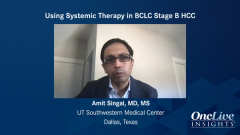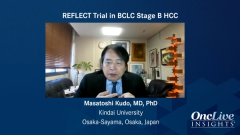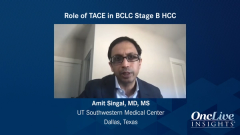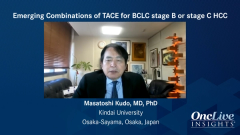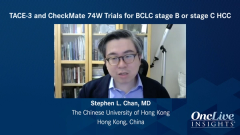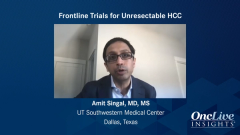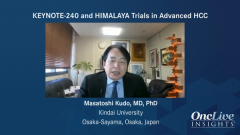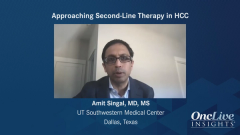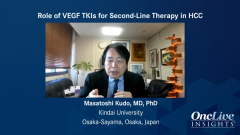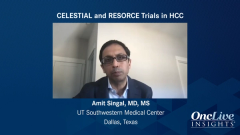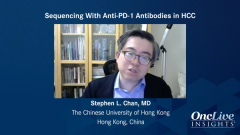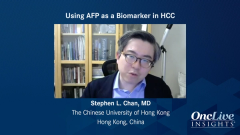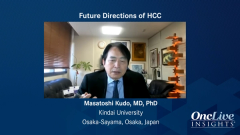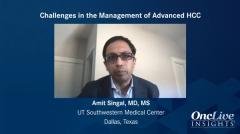
Role of VEGF TKIs for Second-Line Therapy in HCC
Considerations for selecting a VEGF TKI (tyrosine kinase inhibitor) in the second-line setting for the management of HCC (hepatocellular carcinoma).
Episodes in this series

Masatoshi Kudo, MD, PhD: There is an unmet need after PD-1 antibody or after PD-L1 antibody ICI [immune checkpoint inhibitor] therapy, which is a second-line agent—the best choice of a second-line agent. We applied lenvatinib after ICI, PD-1, or PD-L1 antibody monotherapy. Then we found out that lenvatinib shows a very high response rate. The PD-1, PD-L1 monotherapy response rate is 15% to 20% compared with atezolizumab-bevacizumab because bevacizumab improves the tumor microenvironment from immune suppressive to immune responsive. But the PD-1/PD-1 antibody cannot overcome the suppressive tumor microenvironment and has less than 20% response rate. The other 10%, the tumor microenvironment is suppressive, but the PD-1 antibody is binding to the lymphocyte and is less, around 20 weeks. That is published in JCI Insight. In the case of non–small cell lung cancer using nivolumab, we expect a prolonged lasting effect of binding to PD-1 antibody to the lymphocyte.
In that period, we introduce lenvatinib. The lenvatinib can improve the microenvironment. Then the PD-1 antibody can activate CD8-positive cells, and the CD8-positive cells attack again. Also, PD-1 antibody or PD-L1 antibody is not effective for WNT β-catenin mutation, which is called immune exclusion class or immune cold class. That is because that class, the β-catenin mutation, excludes the dendritic cell and the CD8-positive cell. The ICI monotherapy is not effective at all in β-catenin mutated HCC [hepatocellular carcinoma].
However, there are lenvatinib and lung data of β-catenin mutation quoted with a high expression of FGFR4. That paper showed FGFR4-high HCC. Lenvatinib had a response rate of 80% compared with 30% in patients with low-FGFR4 HCC. The PFS [progression-free survival] is longer in FGFR4-high expression HCC. That’s because the lenvatinib has a high inhibitory effect for FGFR4 molecule, so it’s 100 times inhibitory activity in terms of IC50, very potent activity to FGFR4 inhibition.
To summarize, in β-catenin mutated HCC, ICI is not effective. But in that patient population, lenvatinib is highly effective. After ICI therapy, lenvatinib shows a very good response rate and very long OS [overall survival]. But in our study, maybe more than 10 months after introducing lenvatinib and after ICI introduction, the 30-month OS was obtained, which is much longer than lenvatinib in the REFLECT trial and nivolumab in CheckMate 459 trial. In the REFLECT trial, the OS is 13.2 months with lenvatinib. In CheckMate 459, the OS with nivolumab is 14 to 16.7 months. Compared with those, 30 months is very long. There are 2 reasons: improving microenvironment and, for β-catenin–mutated HCC, lenvatinib is effective in 30% of patients. For that reason, lenvatinib is the best second-line agent after immunotherapy.
Transcript Edited for Clarity


